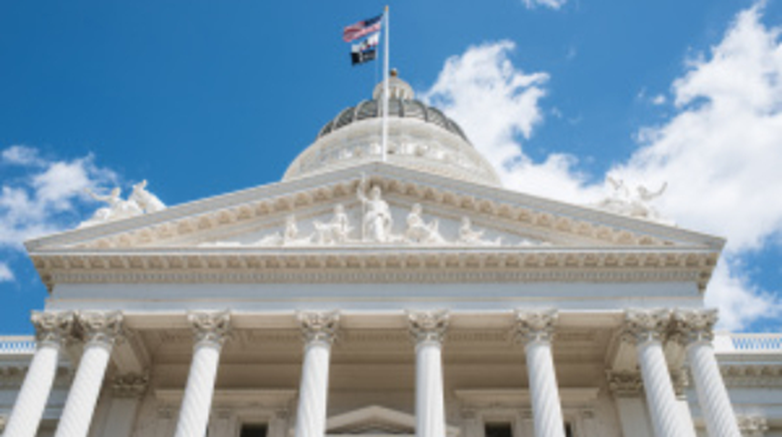
Mariko Yoshihara
Building on our victories from last year, CELA is partnering again with lawmakers and organizational allies to continue to push for strong and innovative worker protections in California.
Our legislative agenda this year includes bills to shore up whistleblower protections for public employees; expand job-protection for workers taking family leave; strengthen our anti-discrimination laws, and allow workers to recover damages in mixed-motive discrimination cases; bolster compliance with our equal-pay laws; ensure that workers can recover their attorneys’ fees in whistleblower retaliation cases; provide workers with the right to take bereavement leave; and establish long-overdue health and safety protections for domestic workers.
Of course, much of our attention also will be focused on the various proposals to amend AB 5, the bill passed by Assemblywoman Lorena Gonzalez last year to codify and expand the ABC test for worker misclassification, as established in Dynamex Operations West, Inc. v. Superior Court of Los Angeles (2018) 4 Cal.5th 903 (Dynamex). Already, over two dozen bills have been introduced to either exempt certain industries from AB 5 or to overhaul the ABC test entirely. As discussions on these bills move forward, we will be working closely with Assemblywoman Gonzalez’s office and our labor allies to help hold the line and preserve the ABC test from these varied attacks.
In addition to defending AB 5 and Dynamex, we are prepared for the perennial attacks to the Private Attorneys General Act (PAGA). Four bills already have been introduced this year to weaken labor code enforcement under PAGA. Most concerning is a bill by Senator Bill Dodd that would require employees to give notice to an employer
for any wage statement violation and would give the employer 65 days to cure the violation before any action could commence. This bill would also cap penalties at $5,000 if the aggrieved employees did not suffer “actual economic or physical harm.”
Armed with a new report titled California’s Hero Labor Law: The Private Attorneys General Act Fights Wage Theft and Recovers Millions from Lawbreaking Corporations, we will have additional data and worker stories to help fend off these attacks. This report — by the UCLA Labor Center, The Center for Popular Democracy, and the Partnership for Working Families — is a must-read. According to the report, PAGA is “workers’ best chance to defend their labor rights including being paid minimum wage and overtime compensation, using earned sick leave, taking rest and meal breaks, and gender pay parity…Corporate interests have tried to weaken and even repeal PAGA by making claims not grounded in facts. The real story is that major companies engage in real wrongdoing.”
Worker privacy is another burgeoning issue at the state capitol. After fighting to preserve privacy protections for workers under the historic California Consumer Privacy Act last year, there is now growing attention around the use of technology in the workplace and the future of discrimination and labor law in the digital age. For example, one bill this year would create a rebuttable presumption that using algorithmic technology in hiring would not have a disparate impact on protected classes if certain conditions are met. We will continue to monitor these types of bills and work with organizational partners to ensure that rapidly evolving technology is not used to undermine our employment and civil rights laws.
With over one hundred new labor and employment bills introduced since January 1st, this will be an extraordinarily busy year for CELA. Still, we are hopeful that we will continue to advance our pro-worker legislative agenda and preserve our hard-fought wins.
Details on CELA’s Legislative Agenda:
- Anti-Discrimination Enforcement: We are working with Assemblymember Rob Bonta and various civil rights groups to clarify the legal standard for discrimination claims under the Fair Employment and Housing Act and to allow workers to recover damages in mixed-motive discrimination cases (AB 2947);
- Equal Pay: We are working with Senator Hannah-Beth Jackson, Equal Rights Advocates (ERA), and American Association of University Women (AAUW) to codify pay data reporting requirements for employers with 100 or more employees (SB 973);
- Retaliation: We are working with Assemblymember Ash Kalra’s office again to give workers more time to file an administrative retaliation complaint and to allow workers to recover their attorneys’ fees for claims under Labor Code Section 1102.5 (AB 1947);
- Family Leave: Through the Governor’s proposed budget, we are working with Legal Aid at Work, the Work and Family Coalition, and First Five California to amend the California Family Rights Act and Pregnancy Disability Leave so that all workers are eligible to take leave, regardless of employer size. The proposal would also expand the definition of family member, so that workers can take job-protected caregiving leave for extended family members (Budget Trailer Bill);
- Bereavement Leave: We are working with Assemblymember Shirley Weber (AB 2992) and Assemblymember Evan Low (AB 2999) to ensure that workers have access to job-protected time off for bereavement leave;
- Public Employee Whistleblower Protections: We are working with Assemblymember Kevin McCarty and the State Treasurer’s office to help boost whistleblower protections for public employees under the California Whistleblower Protection Act (AB 3265);
- Domestic Workers’ Health and Safety: We are working with Senator Maria Elena Durazo, the California Domestic Workers Coalition, and Worksafe to get rid of the unjust exemption that denies domestic workers from health and safety protections under the Labor Code (SB 1257).
 Be part of CELA’s legislative efforts by joining us on March 17th when our members will be lobbying lawmakers on these important measures. The deadline to register for Lobby Day is March 13. Details and registration info are available on the Events page at CELA.org.
Be part of CELA’s legislative efforts by joining us on March 17th when our members will be lobbying lawmakers on these important measures. The deadline to register for Lobby Day is March 13. Details and registration info are available on the Events page at CELA.org.
Read More
Read Full Article

 Be part of CELA’s legislative efforts by joining us on March 17th when our members will be lobbying lawmakers on these important measures. The deadline to register for Lobby Day is March 13. Details and registration info are available on the Events page at
Be part of CELA’s legislative efforts by joining us on March 17th when our members will be lobbying lawmakers on these important measures. The deadline to register for Lobby Day is March 13. Details and registration info are available on the Events page at